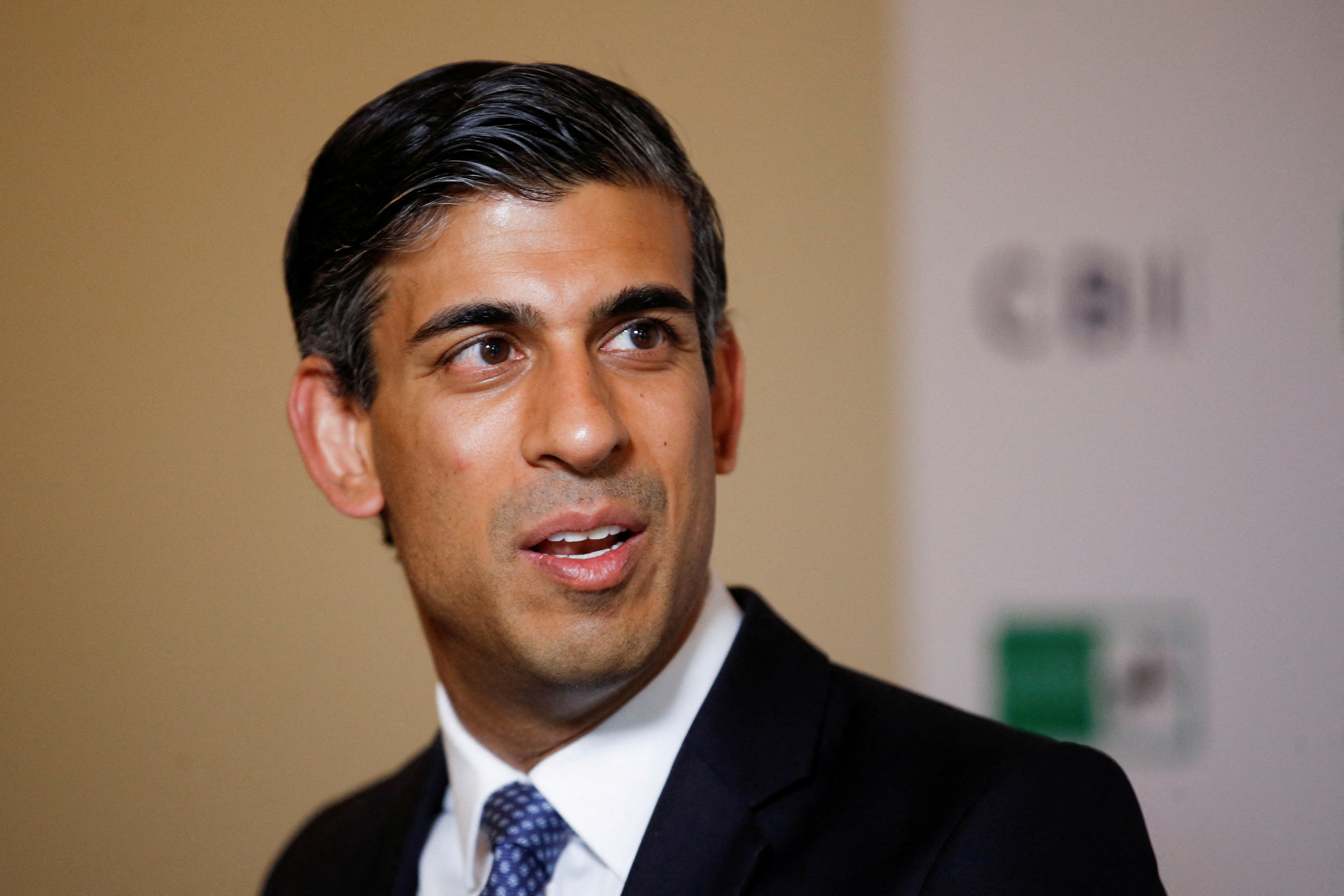What will Rishi Sunak’s windfall tax announcement unveil today?
The chancellor is preparing to unveil billions of pounds of support for people facing soaring bills - but what’s being considered?

Your support helps us to tell the story
From reproductive rights to climate change to Big Tech, The Independent is on the ground when the story is developing. Whether it's investigating the financials of Elon Musk's pro-Trump PAC or producing our latest documentary, 'The A Word', which shines a light on the American women fighting for reproductive rights, we know how important it is to parse out the facts from the messaging.
At such a critical moment in US history, we need reporters on the ground. Your donation allows us to keep sending journalists to speak to both sides of the story.
The Independent is trusted by Americans across the entire political spectrum. And unlike many other quality news outlets, we choose not to lock Americans out of our reporting and analysis with paywalls. We believe quality journalism should be available to everyone, paid for by those who can afford it.
Your support makes all the difference.Rishi Sunak is poised to announce billions of pounds of help for people struggling with massive rises in the cost of essential goods.
The chancellor is expected to unveil his support plan at 11.30am on Thursday, after coming under heavy pressure from all sides of the political spectrum.
He had resisted calls to spend more money, arguing that it would be "silly" to do so now when energy bills would not be going up again until October.
But Sunak has been forced to act as the crisis has deepened and the multimillionaire chancellor has increasingly been seen as "out of touch" with the problems ordinary voters face.
When will help be announced?
Reports suggest an announcement is imminent and is expected to come at 11:30am on Thursday. The chancellor had favoured waiting until later in the summer but events have forced him into more urgent action.
Signs for the economy are worsening, with consumer confidence hitting an all-time low and businesses slashing investment while warning that orders are drying up.
Announcing help now could provide certainty for people who are fearful for their financial position, thereby helping the wider economy.
What might be announced? - a windfall tax

Until recently, the government had broadly been opposed to a one-off tax on oil and gas producers. Labour had pushed a one-off tax on North Sea fossil fuel firms, who are among those to have benefited from big increases in energy prices this year.
According to Labour’s estimates, the tax could collect £1.2bn for the Treasury, which could be used to help people struggling with rising living costs.
That figure is only a small fraction of the extra costs that Britons will be hit with this year.
The chancellor is now thought to be planning to bring in a much broader tax on energy generators, including wind farm operators, who have benefited from high prices.
The tax would reportedly target £10bn of "excess profits", though it's unclear how much it would raise for the Treasury.
Overall, the government is thought to be considering a spending package of as much as £10bn.
According to the Resolution Foundation think tank, government needs to spend £15bn to help people on lower incomes through the crisis.
Energy bill grants
Sunak could use the proceeds from a windfall tax to upgrade a £200 cut to energy bills he announced earlier this year.
The cut has been criticised because the money saved will be recovered through a levy on bills of £40 a year for the next five years.
It is also not targeted at people on lower incomes who are being hit hardest by increases in living costs.
Sunak is reported to be planning to convert the cut into a non-repayable grant and make it more generous with households receiving a discount of as much as £400.
Increase the Warm Home Discount
The Treasury is reportedly looking to make the existing warm homes discount scheme more generous.
It offers three million households on lower incomes a £150 reduction on their bills but this could increase to as much as £500 or £600.
That would be expensive for the government but would have the advantage of being much more targeted.
Increasing universal credit
Increasing benefits would be the simplest way to get cash to the right people.
There is broad consensus among a number of think tanks, politicians and anti-poverty campaigners that it is the most efficient way to target public spending.
However, the chancellor has been reluctant to agree. This week he re-emphasised his preference for tax cuts over increases to benefits payments.
It would be seen as a u-turn after the government scrapped a £20 uplift to universal credit introduced during the pandemic.
The chancellor would also face questions about why he claimed that an outdated government IT system meant that benefit payments could not be increased more than once a year.
VAT cut
Boris Johnson is believed to favour measures that would also help middle-earners, such as a VAT cut.
The Liberal Democrats are backing a reduction in VAT on household energy bills from 5 per cent to zero.
The move would cost around £2.5bn and save the average energy customer £90 a year. However, it would not be targeted at those most in need.
Other tax cuts
The chancellor could scrap a 1.25 percentage-point increase to national insurance contributions but he has already partially rowed back on the tax hike.
In his spring statement he announced changes to the policy that were designed to help people on below-average incomes. So, any further changes would benefit people who are already relatively well-off.
The government is said to be looking at bringing forward a planned 1p cut to income tax that’s due to be introduced in 2024. Again, this would be a poorly targeted measure.





Join our commenting forum
Join thought-provoking conversations, follow other Independent readers and see their replies
Comments